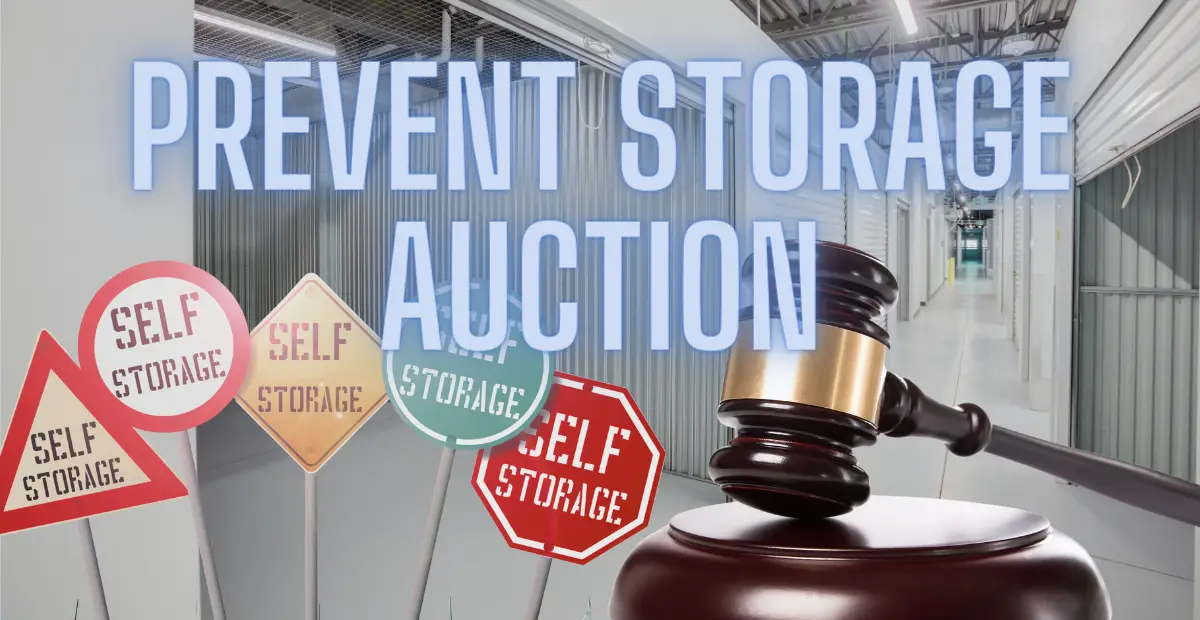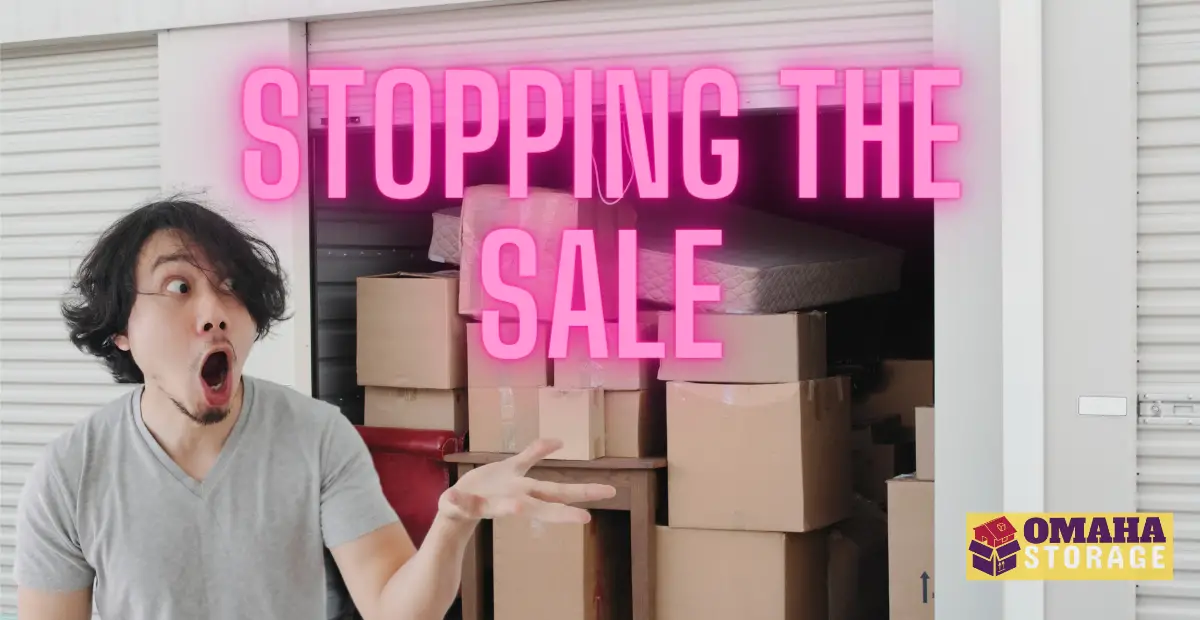Just like everyone else who has a storage unit… You’ve tucked away your most prized possessions, convinced that they’re safe and sound.
Only to one day find out your precious cargo is on the brink of being auctioned off.
This is part two of my series on how to stop your storage unit from going into an auction.
I understand one’s stuff isn’t just ‘stuff’. It’s memories, investments and perhaps even heirlooms; losing them would be like losing a piece of yourself. The mere thought can send shivers down anyone’s spine.
You see my friend — whether you’re an ardent hoarder or someone dipping their toes into the whole ‘storage-unit-thingamajig’ for the very first time — this article is tailored precisely for YOU!
So sit back as we weave our way together through these tricky paths armed with wit (and wisdom!). Because when it comes to ensuring your prized possessions stay safely within arm’s reach – well let’s just say we are about become fast friends.
Understanding Your Storage Unit Contract
Let’s start here. Getting a storage unit involves signing a contract that contains crucial information concerning the implications of late or nonpayments. This document is vital, and you need to comprehend each detail within it.
Understanding this gives you an idea of what to expect should things go south.
Terms and Conditions of the Agreement
Each self-storage facility has unique terms and conditions, depending on their policies. Therefore, be keen on every clause outlined in your agreement.
By doing so, you can define available avenues when it comes to preventing auctions after defaulting payments.
Payment Schedules in the Contract
Within these agreements are stipulations about payment schedules: monthly or quarterly basis as commonly preferred by many facilities.
You should religiously abide by these timelines lest your belongings end up auctioned!
Implications of Defaulting on Payments
It’s also fundamental for tenants to know what happens if they default on their payments; an area often smoothly covered in most contracts but overlooked during signing sadly due to its ‘insignificant’ nature at that time.
Grace Periods for Late Payments
Also highlighted in these contracts are grace periods offered upon late payment which vary from one provider to another- being aware of this helps you plan accordingly.
Options To Prevent Auction If You Default on Payment
Several options exist when faced with potential auction scenarios due to defaulted payments.
Reaching Out To The Storage Facility Management
One immediate step would be getting in touch with the facility management indicating your financial predicament — they might just cut a deal!
- Discussing Possible Payment Plans
- Asking for Extended Grace Periods
- Negotiating A Partial Payment Plan
You could arrange partial payments over time until settling the debt completely or even ask politely for an extended grace period!
If you’ve always been on time in the past, it’s likely they will grant you an extension. Sadly, with the economy currently, there are many people behind on their self storage payments. Getting an extension is seen as a way to keep people from falling too far behind.
Finding Financial Aid Or Loan Options
There’re organizations offering loans specifically tailored towards offsetting storage units balances: seek advice from local charities too who’d willingly chip into helping out.
Selling items From The Storage Unit To Settle Debt
Another unconventional yet viable solution lies here whereby selling some less valuable items recovers parts (or whole) unpaid balance hence calling off auction!
| Consider Charitable Organizations Willing To Help. | A pool of charitable bodies offer monetary assistance towards stopping imminent auctions! |
Taking Legal Action Against an Impending Auction
Legal ways provide great alternatives against foreclosures like filing bankruptcy petitions halting all collection efforts instantly!
This creates room allowing renegotiations ultimately squashing possible auctions since now protected under bankruptcy laws!!
Filing For Bankruptcy As Last Resort Option
Filing for bankruptcy might sound drastic, but it can be a lifesaver when you’re staring down the barrel of an impending auction.
It’s like hitting the pause button on all collection efforts, including the auction of your storage unit.
But remember, this truly is a last resort option.
It comes with several consequences and should only be considered after consulting with a legal professional.
Preventing Future Auction Scenarios
Prevention is better than the cure. How can you prevent finding yourself in this situation again in the future?
Start by understanding the terms of your storage unit rental agreement. Know your payment due dates, late fee policies, and the facility’s auction process. Knowledge is power, and in this case, it’s the power to prevent future auction scenarios.
Maintaining Communication with Facility Management
Communication is key in any relationship, and your relationship with your storage facility management is no different. If you’re facing financial difficulties, let them know.
They might be able to work out a payment plan or offer other solutions. Remember, they’d rather get paid than go through the hassle of an auction.
Keep the lines of communication open and be proactive in addressing any issues.
Making Timely Monthly Payments
This might seem obvious, but it’s worth emphasizing. The best way to keep your storage unit possessions from going into auction is to make your monthly payments on time.
Set up automatic payments or reminders to ensure you don’t miss a payment. If you’re struggling financially, consider downsizing to a smaller unit or selling some items to cover the cost.
Facing the auction of your storage unit possessions is an extremely stressful experience. Especially when other people are counting on you for taking care of their stuff.
With the right strategies, you can navigate this challenge and come out on top.
Whether it’s taking legal action, maintaining open communication with facility management, or making timely payments, you have the power to change the course of events.
Remember… there’s no shame in seeking help. Reach out to a legal professional or financial advisor to explore your options and make an informed decision.



